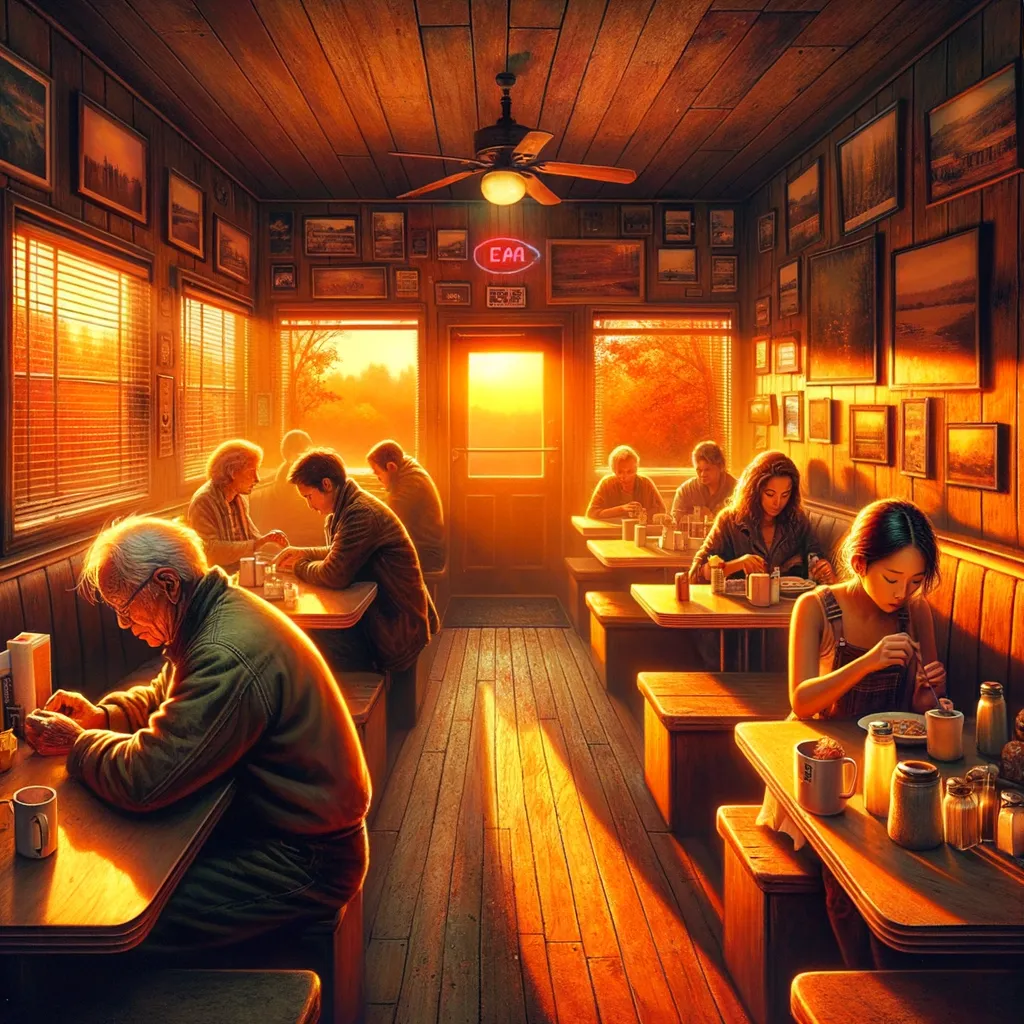Whispers of Conscience: A Journey Through Moral Labyrinths
At the edge of a small town, where reality danced with the extraordinary, a chill in the autumn air heralded a day that would unravel the threads of moral complexity. Stepping into a quaint diner, the rich aroma of coffee intertwined with the warmth of untold stories, awakening a sense of something profound lurking just beneath the surface. As the clatter of plates harmonized with whispers of patrons, a man lost in thought and a young girl clutching a battered book ignited reflections on choices cloaked in ambiguity and the innocence of hope. The atmosphere shifted dramatically with a heated argument, transforming the diner into a battleground of ideals, challenging the very essence of empathy and understanding. Emerging into the crisp evening air, a newfound awareness settled within, revealing that our conscience is a mosaic of experiences and connections, guiding us through the intricate tapestry of life’s moral dilemmas.
In the memory of November 28, 2002, I found myself standing at the edge of a small town, where the boundaries of reality and the extraordinary seemed to blur like colors on a painter’s palette. The chill of autumn wrapped around me, whispering secrets through the brittle leaves that danced in the wind. That day held a weight, a palpable tension that felt like the calm before a storm, as if fate was gathering its forces to challenge me in ways I could hardly foresee.
A quaint diner beckoned from the corner of Main Street, its neon sign flickering like a heartbeat. I stepped inside, greeted by the rich aroma of coffee mingling with the sweetness of baked goods. It was here, amidst the clatter of plates and the murmurs of patrons, that I first felt the presence of something otherworldly. It wasn’t an apparition or a ghostly figure, but rather a sensation, as if my own conscience had taken form and was observing me from the shadows, ready to guide me through an unexpected moral labyrinth.
The waitress, with her apron stained from years of service, moved with an effortless grace that belied the chaos of the diner. Her voice, warm and soothing, seemed to carry the weight of stories untold. In that moment, I imagined my conscience wearing her attire, a patchwork of experiences and choices that had stitched together the fabric of my being. Each interaction, each smile, was a thread woven into a tapestry of right and wrong, shaping the very essence of who I was.
As I sipped my coffee, the door swung open, and in walked a man who appeared to be lost in thought, his brow furrowed in deep contemplation. His attire was unremarkable, yet his presence commanded attention. I couldn’t help but wonder if he, too, was grappling with the kind of moral dilemmas that often felt insurmountable. In that instant, the diner became a microcosm of life’s complexities, where choices danced like shadows around every table.
The man sat alone, his gaze fixated on a newspaper that lay crumpled before him. A headline caught my eye—a story about a local scandal, a betrayal that had shaken the community to its core. It was a stark reminder that life often presented choices cloaked in ambiguity, where the lines between right and wrong blurred in the fog of human emotion. I felt a stirring within me, a pull toward understanding the deeper narrative of that day, and the choices that defined us.
Suddenly, the bell above the door jingled again, and a young girl burst in, her cheeks flushed with excitement. She clutched a battered book to her chest, a treasure that held the stories of her dreams. In her innocence, I saw the embodiment of hope and the belief in possibilities. It struck me that perhaps my conscience, if given a voice, would speak with the clarity of a child, untainted by the cynicism that often accompanies adulthood. What choices would she make in the face of the world’s complexities?
As I pondered these questions, the diner’s atmosphere shifted. A heated argument erupted between two patrons, their voices rising in a cacophony of frustration and anger. It was a stark contrast to the warmth that had filled the space just moments before. I felt my heart race, the tension thickening the air. Here lay the real test of moral fortitude—how would one navigate the storm of conflict without losing sight of empathy and understanding?
In that chaotic moment, I envisioned my conscience, not as a serene guide, but as a fierce warrior, ready to step into the fray. It would don armor forged from compassion, wielding a sword of truth that could cut through the fog of misunderstanding. The diner transformed into a battleground of ideals, where each choice carried the weight of consequence and the potential for both healing and harm.
As the argument subsided, I realized that the diner was not just a backdrop but a living entity, a reflection of the world outside. Each person, each story interwoven like the threads of a grand tapestry, reminded me that moral dilemmas were not isolated events but shared experiences. They shaped us, challenged us, and ultimately defined the communities we built around us.
When I finally stepped outside, the chill of the evening air wrapped around me like a shroud, but something within me had shifted. I had come to understand that the essence of my conscience was not merely a guide but a mosaic of experiences, choices, and the connections we forge. As I walked away from that small diner, I couldn’t shake the feeling that I was a part of something greater, a narrative that transcended the ordinary.
What, then, does it mean to truly listen to the voice of our conscience in a world filled with moral ambiguity, and how do we navigate the complexities of our choices while remaining true to ourselves?
At the intersection of ordinary moments and profound choices lies the essence of conscience, a mosaic of experiences that shapes the very fabric of existence.



